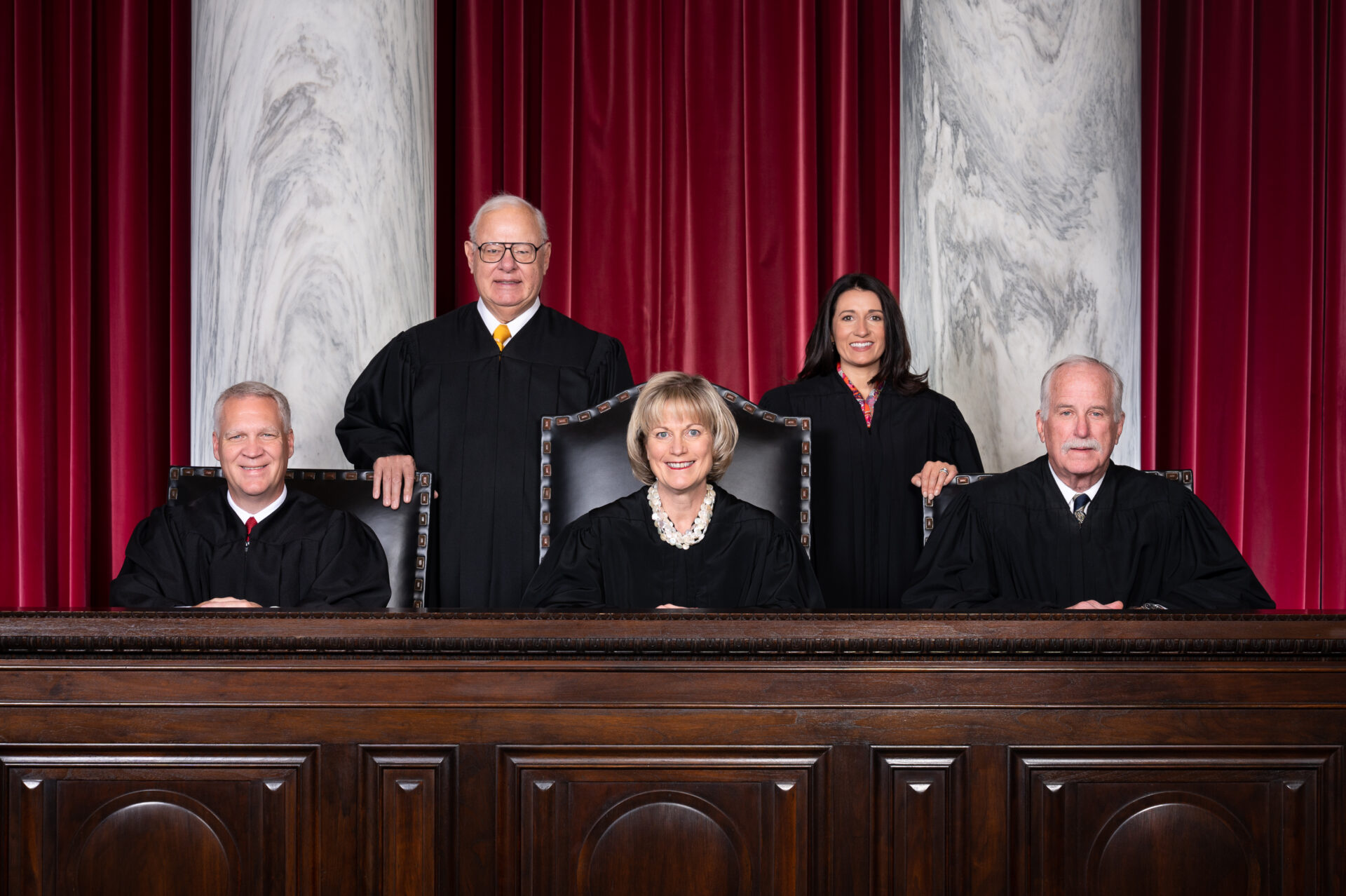West Virginia Supreme Court of Appeals Justice John Hutchison recently delivered a letter to the court indicating he will not be seeking reelection when his term ends.
Hutchison, who has 45 years legal experience, 30 of those served as a judge and two as Chief Justice, reflects on his experience and offers his insight into the current judicial system.
This story has been lightly edited for clarity.
Yohe: You said in your letter that when you came into the court, the system was coming out of a “very dark place.” What has brought it back into the light?
Hutchison: What’s brought it into the light is the infusion of new blood. With new people, new ideas, changing its direction and becoming more transparent. Not secretive and being willing to communicate with each other, which if you were around back in from about 2015 to 2018, you understood that they didn’t talk to each other at all. there wasn’t good communication. We have been bringing integrity back to the court, making sure that we were responsible not only to the litigants before us, but also responsible to the people of West Virginia and the way we run our third branch of government. We work hard, we listen, we are transparent with how we do things, how we spend our money.
Yohe: To put something in perspective, when we look at the federal level, Supreme Court justices are appointed. In West Virginia, Supreme Court justices run for office. Tell me why that’s better.
Hutchison: It’s better that the citizens of the state of West Virginia decide who are going to be their judges, as opposed to political entities or groups without there being a process where the public is actively involved. People can make arguments that the appointed judges have no loyalties to any other group. Effectively, the federal appointments are for good behavior, meaning that they would have to do something wrong to be removed, otherwise, it’s a lifetime appointment. I think the fact that you’re electing your judges means periodically, you got to answer for what you’ve done. And that’s not really difficult in my mind for judges in the state of West Virginia, because most judges that I know, and all members of the Supreme Court that I know, are willing to stand up and face questions or feedback regarding positions they’ve taken on specific cases. It gives the voting public an opportunity to periodically take a look at who they’ve got representing them in this third branch of government.
Yohe: Establishing the West Virginia Intermediate Court of Appeals was a controversy in West Virginia. Have you seen that it is working?
Hutchison: It’s working well. We have worked very hard to make sure that we made the Intermediate Court of Appeals an organization that could be as effective as it possibly could be. They’re handling a huge number of cases. We organized so that we would have those five remote locations, those locations are being used by litigants, so they don’t have to drive all the way to Charleston to be heard in front of the Intermediate. They’ve only been an operation with active cases since September, and they’ve resolved five or 600 already. Everybody had to get involved to set it up and it’s working great right now.
Yohe: When you look at the overall judicial system in West Virginia from magistrate court on up, is there anything that should be done that is not being done to make it better for the people of West Virginia?
Hutchison: The process of filing cases and going digital It’s something and we’re constantly working on that we’re looking at; we currently have a system in place for the family courts and the circuit courts, we also have the separate system in place for the magistrate courts. We are trying to improve that electronic filing system so that it can be more integrated, and – all three levels of court – magistrate, circuit and family can all be working in the same system. We’re continually working on education programs for all levels of court, to make sure that the individuals who are serving in those positions have all the education, the information, access to programs, that sort of stuff that they need. The legislature has worked with the courts with regard to what we need, in terms of budget, what we need in terms of positions. And that process has gone very, very well and I think has been a benefit and an improvement to the judicial system. So we were and we’re constantly working on education, technology, that sort of stuff to improve access to justice for everybody.
